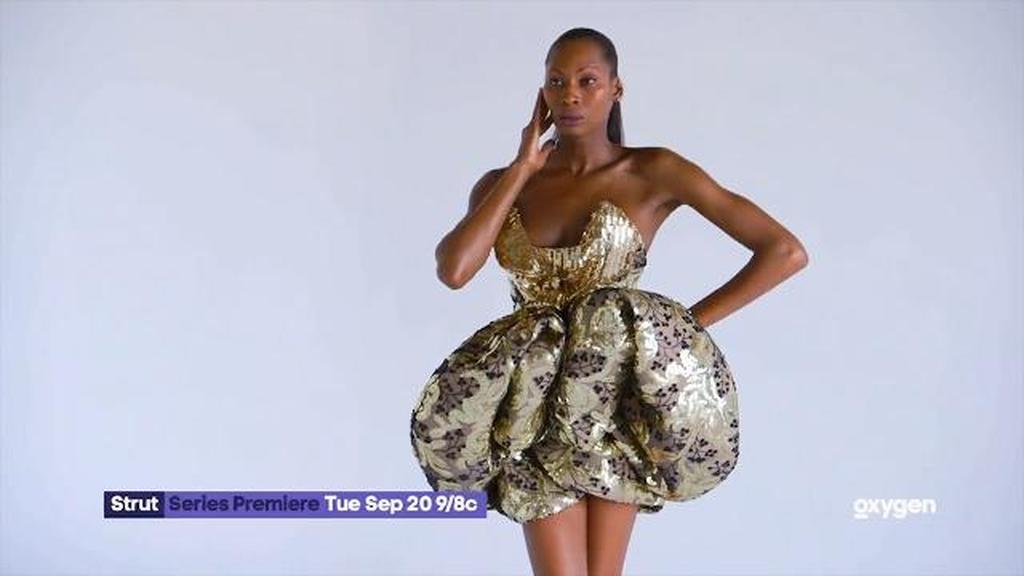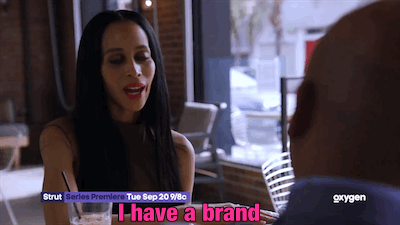Do We Really Need A Trans-Specific Modelling Show?
By Jessica Merritt
Strut, Whoopi Goldberg’s transgender take on America’s Next Top Model, was recently green-lit, and seems to have eased into mainstream media without too much, being touted as: “The show aiming to add traction and visibility to today’s transgender community, and connect them to viewers based on a set of common, core struggles and values.”
I am not entirely sure that aspiring to be a fashion model can be defined as ‘core struggles and values’, to be honest, but bully for them nonetheless.
Even Breitbart appears to have given it a pass, mentioning it in passing with a fairly neutral synopsis, though they did attempt to tie it to controversy:
“The new series comes in the midst of growing controversy over North Carolina’s HB2, newly enacted legislation that mandates that men and women use public restrooms that correspond with their biological sex.”
The models themselves are drawn from Slay Model Management, based in Los Angeles, which touts itself as the world’s first transgender modelling agency.
This is great. Jobs for trans people are few and far between, with the Human Rights Commission (HRC) claiming that trans people report unemployment rates at twice that of the overall population, and of those who do have jobs, more than 40% are underemployed. With most states lacking comprehensive legislation to protect transgender people from discrimination, gaining and holding onto a job can be a tricky business.
The question remains, however, if the ‘separate but equal’ tactic is beneficial in the long run. Certainly, it has already been proven that you can make it as a trans model in the mainstream modelling world (Andreja Pejić immediately springs to mind, as does Hari Nef and Siobhan Atwell. On the other side of the fence we have Ben Melzer strutting his stuff on the cover of Men’s Health, and Laith Ashley has also been making waves). This alone would beggar the immediate question – “Do we need a transgender specific modelling show?”
My answer would be “no”. Not because I do not want trans people to succeed, nor because I do not think they are worthy of recognition and employment opportunities. But segregation of any type rankles me, with its implicit assumptions of different, or, worse, special treatment and how this can alienate the mainstream.
For 99% of trans people, strutting their stuff as a catwalk model is probably not on the cards. Trans people overall will be required to work within the system as it stands, finding their way against peers from all backgrounds, identities and sexualities. And that is how the world should work. To create a transgender only agency, and a transgender only show, does trans people a disservice, to be honest. It implies, initially, that they cannot cut it without having their own niche market, and it relieves the burden of acceptance from the mainstream.
The classic “I don’t mind them queers/trans/gays/blacks as long as they stay out of sight” is the kind of deal being struck here. Relegating trans people to their own show renders them invisible to the groups that need to be worked with the most to build acceptance. Rather than focusing on building trans visibility in the mainstream, they are being shuffled off to their ‘own show’ where they won’t bother anyone.
There is also the issue of the show potentially becoming crassly exploitative, and making a mockery of trans people and gender dysphoria. This does not seem likely, given Whoopi’s background and previous sympathetic comments she has made (particularly in being supportive to a pregnant trans man.)
The optimistic take would be to celebrate any opportunity to educate the mainstream on trans people, to show them they are just like you and I, they are everyday people with everyday lives (well, as ‘everyday’ as aspiring fashion models can be), and are not out to bring down western society by simply existing as who they were born to be.
This show might be a great chance for some aspiring young talent to rise and realise their ambitions. But with the primary demographic of such shows being shown to be already overwhelmingly in favour of LGBT rights, the show will probably miss the much needed audience of older generations who hate and fear what they do not understand.
Ultimately, however, the show will be restricted by its genre; reality TV shows are not noted for their emotional depth and sophistication, and I doubt this one will be any different. While we do need to brace ourselves for the inevitable eye rolling from the “you’re not special” crowd, I doubt this show will do much to further or detract from transgender rights overall; as such, it is simply not necessary.
What I would like the world to know, really, is that trans people do not think they are “special” or unique any more than people from any other background. They don’t, overall, want special treatment or rights, they simply want the same treatment and rights that the rest of the community expects, nothing more and nothing less. The concern that these types of shows imply otherwise is what bothers me the most.





